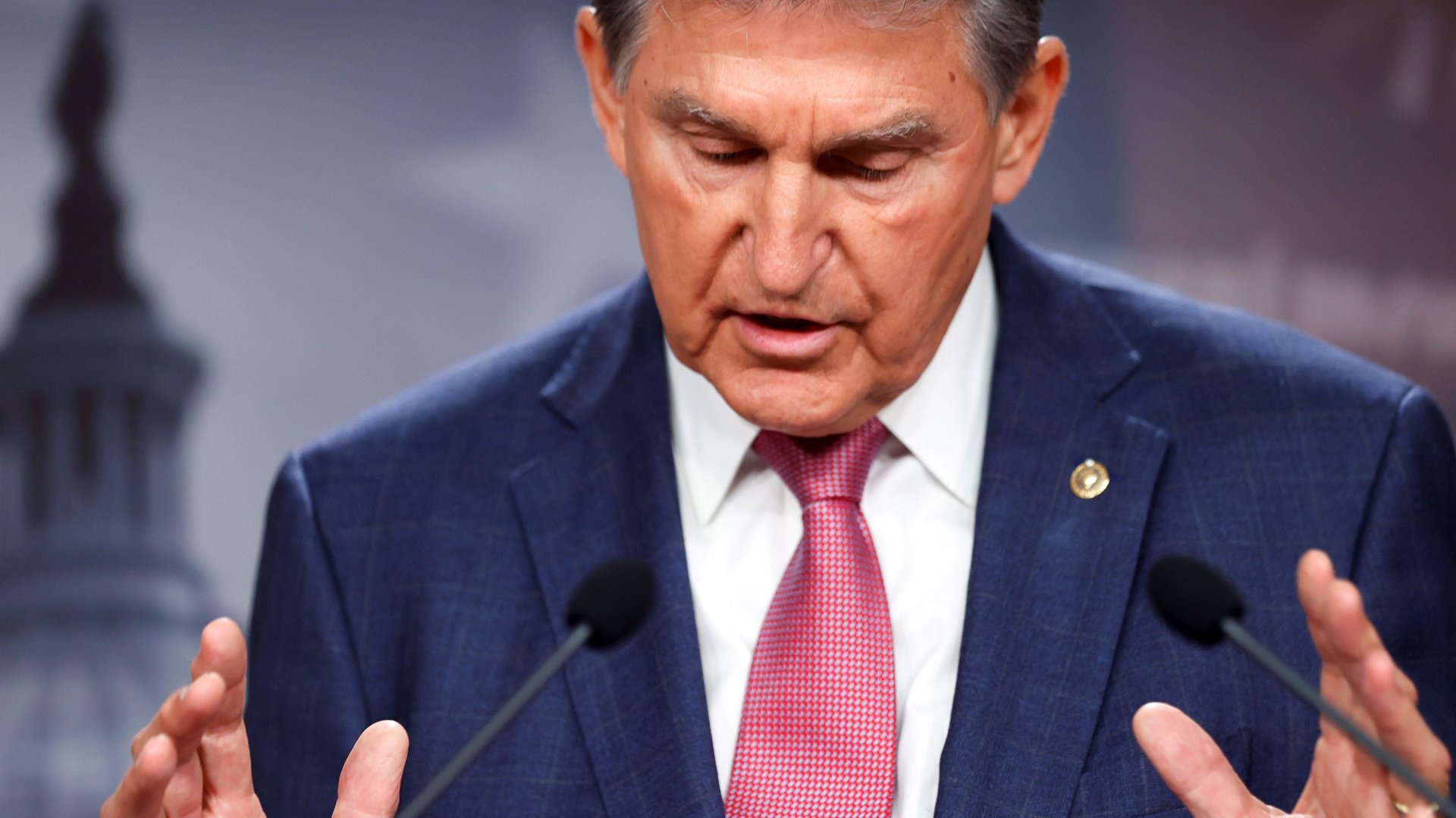Joe Biden’s social spending bill isn’t going to increase inflation
US sen. Joe Manchin is deploying an old argument against president Joe Biden’s social spending bill: inflation uncertainty. After the government reported the fastest inflation rate in 39 years last week, the West Virigina Democrat is balking at the proposed $1.75 trillion in spending, saying it will fuel consumer prices.


US sen. Joe Manchin is deploying an old argument against president Joe Biden’s social spending bill: inflation uncertainty. After the government reported the fastest inflation rate in 39 years last week, the West Virigina Democrat is balking at the proposed $1.75 trillion in spending, saying it will fuel consumer prices.
“Inflation is real, it’s not transitory. It’s alarming. It’s going up, not down,” Manchin said. “The unknown right now is very, very great.”
But not all government spending is equal. While previous rounds of pandemic spending, like stimulus checks, did immediately result in more consumer spending, Biden’s bill, known as the Build Back Better Act, won’t hurt Americans struggling with higher prices. In fact, several provisions, like the child tax credit, would help them cope with inflation. And in the long run, the proposal would help build a stronger workforce.
Here’s what Manchin’s argument is not taking into account:
Low inflation is also bad for the economy
It wasn’t that long ago that policymakers were worried about low rather than high inflation. In a speech earlier this year, US Federal Reserve chair Jerome Powell pointed out that inflation in rich countries hasn’t topped 2% even in good times, as technology, globalization, and other factors drive down prices. “While the underlying global disinflationary factors are likely to evolve over time, there is little reason to think that they have suddenly reversed or abated,” he said. “It seems more likely that they will continue to weigh on inflation as the pandemic passes into history.”
That’s why the Fed has been more tolerant of inflation in order to strengthen the job market. And even though Powell recently suggested retiring the term “transitory” to describe inflation, he implied his intent was to avoid confusion, not signal that he believes the current pace of price increases will be permanent. The kind of policies in the Build Back Better bill are designed to ensure the US doesn’t have to worry about disinflation in the long term.
Build Back Better will help Americans cope with inflation
Build Back Better is unlikely to cause a spike in inflation in the short term. It will actually help Americans manage price increases. For example, by extending the Childcare Tax Credit (CTC) for one year, low- and middle-income American families would get up to $300 a month for every young child they have. That would not only give the job market a boost by helping mothers return to the workforce, but help cover higher bills. (If the CTC were made permanent, it would become like inflation protection for poor families, said former Federal Reserve economist Claudia Sahm.)
The bill would also lower drug prices: It would cap insulin at $35 (diabetics pay up to $1,000 per month) and prescription drug expenses for the elderly at $2,000—currently millions of seniors are being charged $6,000 out of pocket.
Meanwhile, an immigration provision that would bring in more workers to fill jobs at farms and food processing plants would lower food prices, said Alex Williams, a research analyst at Employ America. The Build Back Better legislation would allow 6.5 million immigrants to apply for five-year work permits.
Build Back Better will strengthen the labor force
In addition to increasing the size of the labor force by adding immigrant workers, the bill would build it up in other ways. Its family leave policy would encourage Americans to have more children, and universal preschool would ensure those future workers get a jumpstart on their education.
Overall, Manchin and others shouldn’t be too worried about BBB-related inflation. Much of its funds would be spent over 10 years, and that investment would set up the US for stronger economic growth in the long term. In other words, November’s consumer price index report is a poor excuse to derail the spending bill.